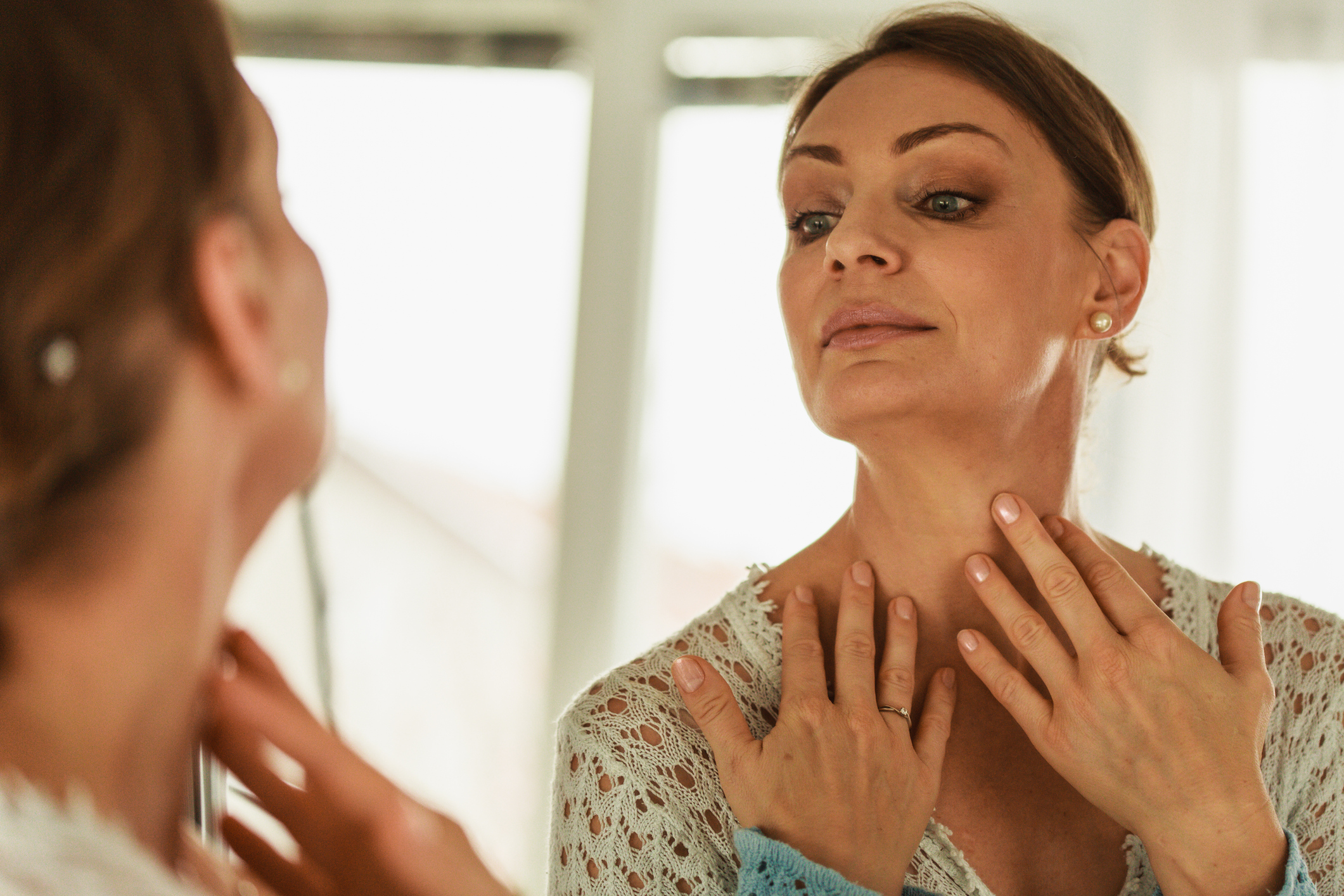

I have a friend who is only in her 50s but is often mistaken for being much older.
Her deep wrinkles and dark spots are to blame, even though she thought she was protecting her skin.
Fortunately, there are natural ways to add layers of additional protection, but first, you’ll need to know exactly what you’re up against…
And it isn’t only the UV rays from the sun that aren’t doing your skin any favors, as most of us have been led to believe…
Photoaging: What laptops, smartphones and sunlight have in common
You’ve probably heard warnings about spending too much time in front of your computer or looking at your smartphone screen because of the damaging effects of the blue light they emit.
The cornea and the lens of the eye help keep UV rays from reaching the retina. But they can’t keep the blue light out.
Numerous studies confirm that a lifetime of cumulative exposure to blue light causes the photo-oxidation of retinal cells known to contribute to age-related macular degeneration (AMD).
But what about your skin? While you might be able to slather on enough sunscreen to keep out most of the UV rays from the sun, those products have no effect on blue light — which is only slightly less powerful than UV rays.
A study by German skincare manufacturer Beiersdorf found that an entire week’s worth of exposure to blue light from a screen at a distance of 30cm is equivalent to just one minute of midday summer sun in Hamburg, Germany.
It’s also been established that blue light causes hyperpigmentation — or age spots.
Despite these warnings, we’re still spending more time than ever in front of a screen. But, something that may surprise you, research shows that the sun is a much more significant source of blue light.
So when it comes to premature aging, we’ve got to protect not only against UV rays but blue light too…
How blue light accelerates aging
Blue light exposure causes a significant increase in highly reactive chemicals formed from oxygen, known as reactive oxygen species (ROS).
Too much ROS can damage your DNA, as well as key enzymes responsible for DNA repair. Studies have also shown that blue light can activate genes associated with inflammation and photo-aging (skin damage and premature aging).
Photo-aging is the same process that occurs as a result of UV exposure. Research has confirmed that both UV irradiation (UV A and B) and blue light are known to induce the formation of free radicals and ROS.
So what’s a person to do when sunscreen isn’t the answer to all the rays that can harm your skin?
An added layer of natural protection for skin and eyes
In the late 1980s, researchers at the University of California’s Irvine and San Francisco campuses and the Massachusetts Institute of Technology (MIT) made a series of molecular breakthroughs…
They uncovered specific sets of genes in laboratory animals that kept cells from wearing out, from being overwhelmed by free radical damage, and from self-destructing.
One of the genes, subsequently named SIRT1, induces ROS-detoxifying enzymes that help reduce the effects of oxidation on cells.
And, eventually, it was discovered that resveratrol, found in large amounts in the skin of red grapes, kick-starts the SIRT1 gene into action.
Of all the natural ways to give your skin an added layer of protection, resveratrol is still king.
Resveratrol is also readily available in foods like red wine, blueberries, peanuts, pistachios and dark chocolate — and of course supplements.
But to protect your eyes from free radical damage from blue light, look to lutein and zeaxanthin, antioxidant nutrients from foods like spinach, lettuce, kale, and broccoli, as well as avocados, mangoes, honeydew and egg yolks, and supplements as well.
These two nutrients are part of the AREDs formulation recommended by The American Academy of Ophthalmology for adults at high risk of AMD progression.
I feel a nice egg salad sandwich with veggies coming on… a glass of wine … and some chocolate for dessert! Sounds like a perfect summer afternoon treat to me!
Sources:
Blue light: what we do and don’t know about the damage it causes our skin — The Conversation
Fidalgo, J., Novo Barros, A., & Casas, A. (2022). Resveratrol: A promising Antiaging Agent for Cosmetic Skin Treatments. IntechOpen. doi: 10.5772/intechopen.107860
Pigmentation effects of blue light irradiation on skin and how to protect against them — International Journal of Cosmetic Science
All of the Ways Resveratrol Can Benefit Your Skin — Good Housekeeping
Reactive Oxygen Species and Antioxidant System in Selected Skin Disorders —Malaysian Journal of Medical Sciences

